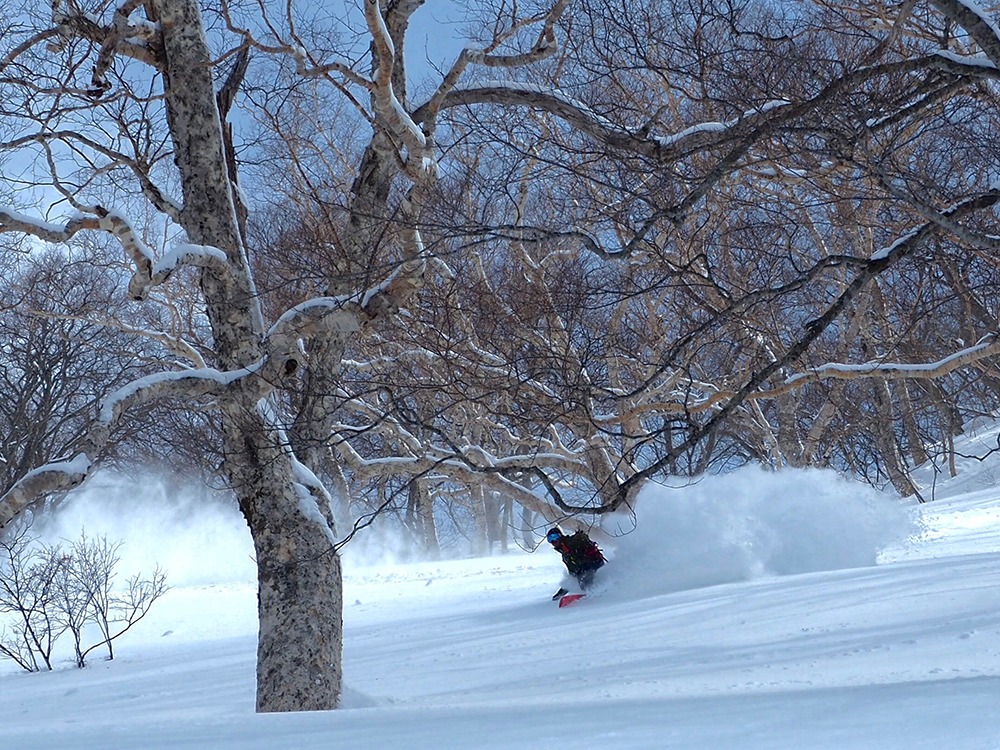
When you go up to the top of the slope in a gondola, you can see the magnificent Hakuba Alps in front of you. "Able Hakuba Goryu" where you can enjoy the sunrise skiing from 7:00 on the weekends during the season, and the night skiing on weekdays. Goryu Co., Ltd. operates the ski resort and operates the Hakuba Goryu Alpine Botanical Garden, which protects rare alpine plants in Japan in the summer. Let's introduce the activities and thoughts that promote various ECO activities and work on environmental protection.
This time, Ms. Sae Tanaka from the Sales Promotion Department gave us a chance to listen to her story. She also serves on the IS&SDGs Committee. What kind of thoughts and ideas does she have as a company and as an individual, and how is she working on the SDGs?
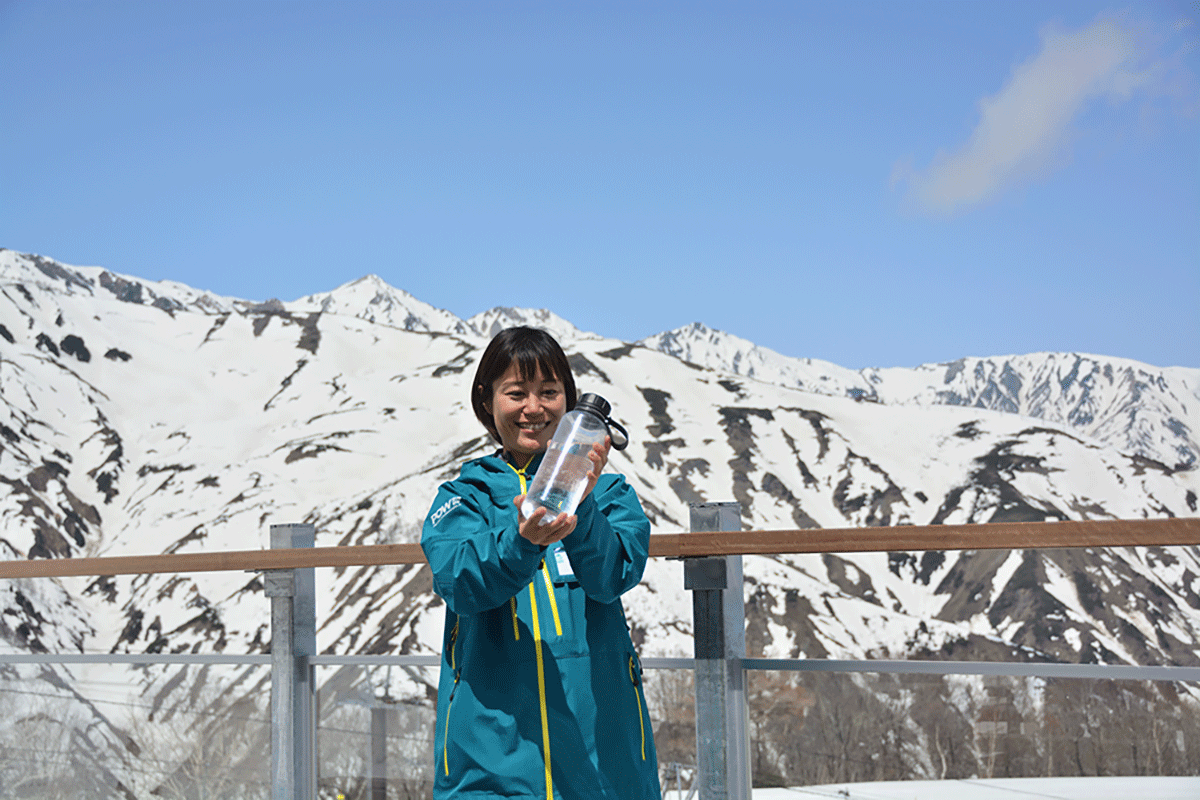
Background of SDGs initiatives
―What was the history and background of your environmental efforts?
Mr. Tanaka: I think it's been about two years since "SDGs" became common, but when it comes to when the company started working on SDGs, the word "SDGs" comes up20 Sustainability initiatives have been in place for more than a year.
Goryu Co., Ltd. is celebrating its 51st year in business, and in 2000, with the aim of creating a sustainable tourism business, it opened the Goryu Alps Wild Grass Garden, the predecessor of the Hakuba Goryu Alpine Botanical Garden. The Hakuba Goryu Alpine Botanical Garden is in its 22nd year this year, and I believe that the history of protecting and maintaining this botanical garden itself is proof of its sustainable efforts.
Until now, ski resort development had to cut down forests and open up mountains. Ski resort development is about building structures and making a profit while destroying the natural environment. .
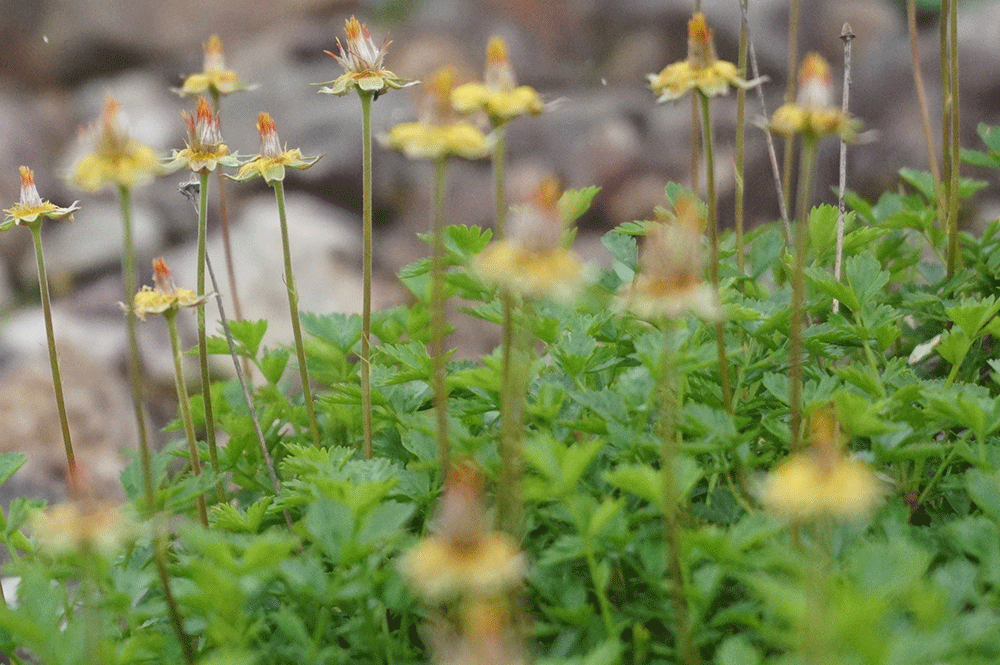
In Nagano Prefecture, there are precious creatures called alpine plants. Located in the middle of Japan, it is the only place in Japan where the southernmost and northernmost alpine plants are mixed, and there are many types of alpine plants. Goryu has nurtured rich vegetation in this unique environment. At the same time, Goryu was born with the idea that we must protect nature and act to protect it.
In the past, it seems that there was no choice but to cut down the precious Dodantsutsuji trees, which are over 400 years old, for development. I tried to transplant it to the foot of the mountain, but it didn't go well, and all the important enkianthus died. From this bitter experience, the staff involved in the development at the time developed a strong desire and consciousness to protect alpine plants and the richness of nature.
―That has been passed down to the present.
Mr. Tanaka: There is a feeling that the main focus of the SDGs is to maintain the global environment, but the essence is to create a system that allows human life and economic activities to continue properly, and to protect nature. Rather than being the top priority, we aim to create a sustainable society where people can live happily.
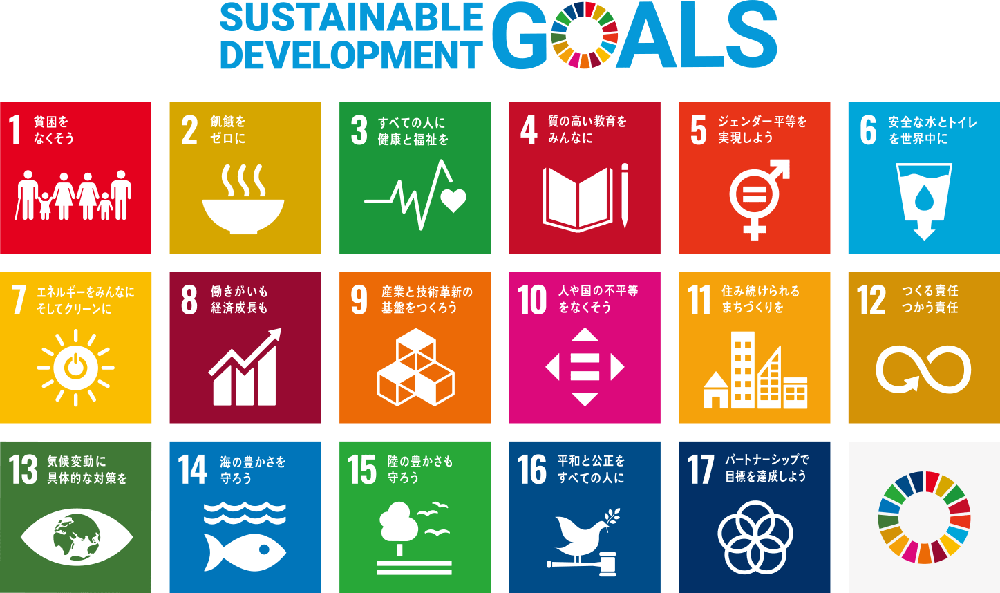
Hakuba is not all right as long as business runs only during the winter ski season. The population of Japan and the skiing population are declining, and foreign customers are coming, but due to changes in the world situation such as the current corona crisis, there are many places where ski resort management will not be able to survive if it does not fit perfectly. come. This raises the question of how to maintain employment and tourism in the region, and it is not enough to just guarantee winter. The economic sustainability of tourism is also important, and it is also important to protect local employment.
In order to continue to be an area that attracts people all year round, it is necessary to properly set up business outside the winter season. At the same time, from the perspective of the need to protect nature, when we thought about solutions for both sides, we decided to start full-scale conservation of alpine plants.
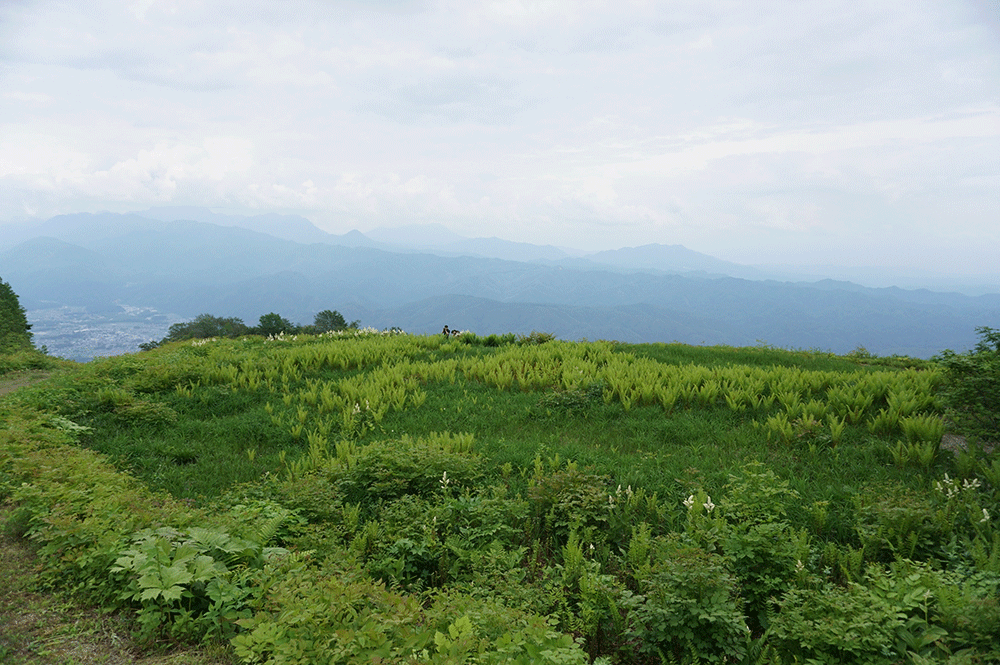
The Hakuba Goryu Alpine Botanical Garden has two major goals: environmental conservation and promoting summer tourism in Hakuba Village. Building promenades on the slopes of the Alps-daira slope, stacking stones, and planting trees with the locals are all hard work, but as a result, the number of flower stocks has increased, and about 10 years ago 2 million strains and 300 species. Now, in 2022, it boasts the largest variety and size among alpine plants registered with the Japan Botanical Garden Association.
It can be said that this alpine plant protection activity has been working for more than 20 years in terms of sustainability in terms of the global environment, human social activities, economic activities, and corporate activities, even before the SDGs became popular in recent years. I think so. At that time, he had a clear foresight and thought that 20 years from now, the ski resorts alone would not be able to sustain the business.
―This is consistent with Goal 8 of the 17 SDGs, “decent work and economic growth.”
Mr. Tanaka: Many ski resorts operate by hiring workers only for the winter season, but in the summer, they work hard at the botanical garden, starting with watering and weeding all day long, changing the soil, and so on. I think that the operation is such that people who work outside all day, such as cutting trees, can secure employment throughout the year as much as possible while maintaining a certain amount of winter ski resort staff.
Relations with POW and efforts to combat global warming
―I heard that Goryu was the first to establish a relationship with POW Japan.
Mr. Tanaka: POW was launched in the United States in 2007, and then in 2019, POW Japan was launched by Mr. Goro Komatsu, who lives in Hakuba. The partnership system with POW is a system that forms partnerships with companies that support the principles and activities of POW, and it is possible to appeal to the partner companies that they are aware of the crisis of climate change, which is also beneficial for the companies. A partnership contract has been signed, and POW is active with the cooperation money.
The partnership agreement is now in its fourth year, but at the time, even when we started in Hakuba, the term SDGs hadn't spread yet. I don't think I knew you existed. I'm also from Chiba Prefecture, and the only thing I could think of was "It's been hot in the summer lately." I don't think people were conscious of environmental activities in order to protect them.
At that time, the fact that POW was launched was published in the local newspaper "Oito Times", and Ito from Goryu approached us for a partnership. Considering the power of communication, even if a partner contract is made with only a single ski resort at first, it may not make much sense. I thought that it would be more valuable if I could say that it was a resort that could tackle such things.
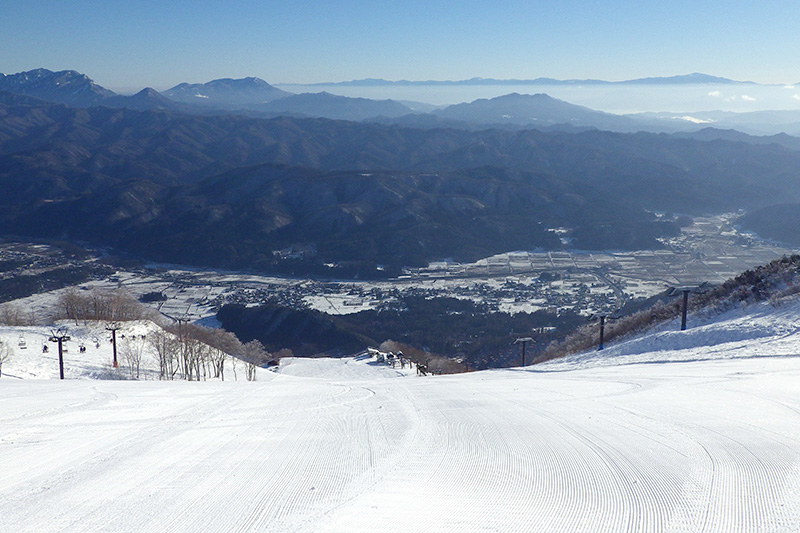
So, I really wanted to sign a contract with HAKUBA VALLEY, but at that time it was not yet clear what kind of existence POW would be, and HAKUBA VALLEY did not have such a sense of urgency to form a partnership. rice field.
However, rather than carrying it over to next year, it would be better to have a ski resort to partner with as soon as possible this year, so Goryu became the first company in Japan to partner with POW. As a result, Happo-san, Iwatake-san, and other ski resorts followed suit, and now we have obtained the consent of everyone at 11 HAKUBA VALLEY ski resorts, so we signed a new contract as HAKUBA VALLEY.

―What is your job as an IS & SDGs committee member?
Mr. Tanaka: Originally, there was an IS committee within the company about six years ago. IS, in the sense of Increase Satisfaction, had a committee whose purpose was to "raise the level of satisfaction." It was a committee to increase the satisfaction of the company as a whole, including customer satisfaction and employee satisfaction. In addition to the SDGs, now as the IS & SDGs Committee, the role is not only to increase satisfaction with the SDGs, but also to think from the perspective of the SDGs, propose improvement plans, and absorb various opinions. is responsible for The committee is made up of about 10 people from each department. We get together once a month, come up with various improvement plans, propose them to the top, and have key people in each department take action.
―Are you active in SDGs activities?
Mr. Tanaka: In reality, it often costs money to concretely implement proposals that are in line with the SDGs. It would be nice to do more and more to cut costs, but it is not easy to realize that costs will increase. Even so, Goryu's commitment to the environment is as follows. We are also telling you on the official HP.
● Through the creation and maintenance of the Hakuba Goryu Alpine Botanical Garden, we are working to restore the natural environment of ski resorts.
● We carry out educational activities such as environmental seminars for local residents, children who will lead the future, the general public, business partners and peers in the same industry.
● As environmental activities that lead to CO2 reduction, we aim to reduce energy consumption by calculating and reporting CO2 emissions and saving electricity.
● (Public corporation) As a protection base for endangered plants in the Japan Botanical Garden Association, we protect and nurture rare alpine plants.
● Utilizing trail riders to promote universal tourism.
● LED lighting is used for night-time lighting on the slopes and facility lighting.
● Thoroughly separate garbage.
● We promote the use of lacquered chopsticks (thinned Kiso cypress) in our restaurants.
● Reduce the use of single-use plastics.
● The ingredients used in the restaurant are procured with priority given to local production.
● Waste oil (cooking oil) from restaurants is collected, refined, and reused as fuel for cars.
● We will reduce the number of shopping bags used as souvenirs, charge a fee, and donate part of the proceeds to environmental support groups.
● Recycled paper is used for production (pamphlets and other printed materials).
● All employees actively use public transportation, carpool, and have a “private car commuting period”.
● We promote diversity, improve customer satisfaction, and educate and train employees.
● We have registered to support the national movement “COOL CHOICE” promoted by the government.
Also, last season, we made it possible for single-parent families to participate in the workshop event at the botanical garden without paying. The purpose of this is to help raise the level of educational opportunities. It is based on the idea of “leaving no one behind”, which is the basis of SDGs.
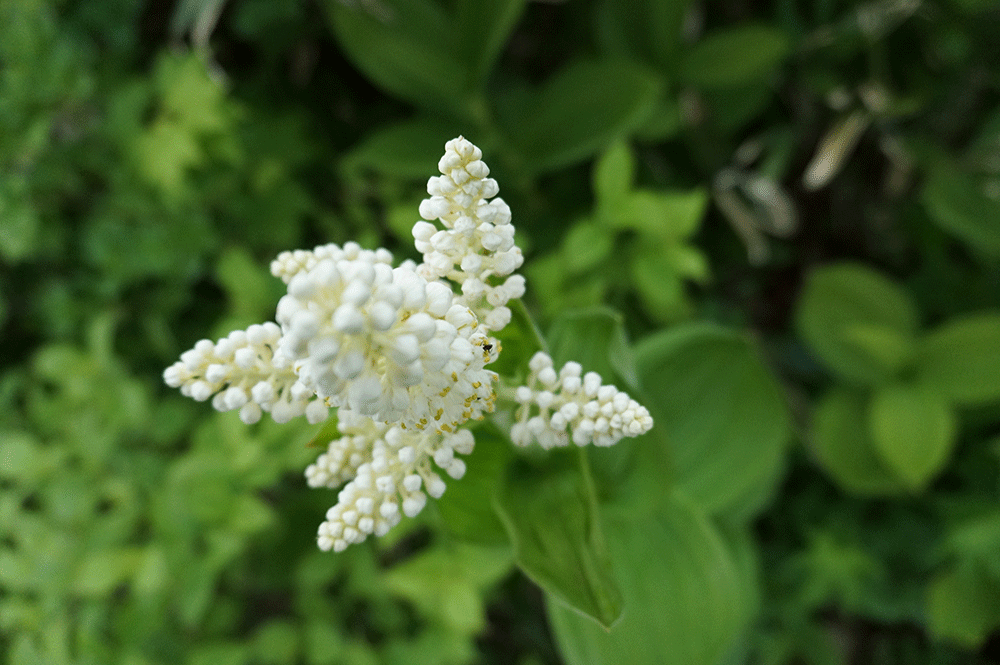
The difficulty of promoting the SDGs
―Are there any difficulties in working toward the SDGs?
Mr. Tanaka: That's right. It is also true that in promoting the SDGs, it is overwhelmingly more costly than cost reduction. For example, as a practical example, last season, Goryu and HAKUBA47 offered partial discounts on lift tickets for three or more people who came by car. If you ride together, you can reduce CO2 even a little.
Such benefits for both ski resorts and customers can be realized immediately, but simply switching all power to renewable energy or switching all lighting to LED In the long run, it will lead to cost reduction, but the initial cost will still be high. Switching in line with the SDGs will overwhelmingly increase costs rather than cut costs. This is directly linked to price increases, so I think it's still a big hurdle to gain the empathy of those around us and the understanding of our customers.
So even if the IS & SDGs Committee makes a proposal, it would be difficult for management to make a decision if it comes to saying, "Is this going to the point of raising the company's costs?" Goryu Co., Ltd. has always been a company that has been involved in environmental protection, so rather than doing something special in line with the goals of the SDGs, we are promoting public relations activities that incorporate the sustainability initiatives that we have been doing so far in the framework of the SDGs. We are currently looking into new possibilities.
However, I think that switching to renewable energy for lift operation, lighting, and snow machines for night skiing introduced in the 2020-21 season is a very significant change.
new and different
Mr. Tanaka: On the other hand, the approach to employee awareness may be something new. I asked Mr. POW to give several lectures on why we have to protect the environment. In order to let you know how seriously we are trying to do this, we had two lectures this year.
Among them, he explained that Japan is actually the country with the most snow in the world, but that the amount of snow has decreased compared to the past, and that this is how the lack of snow and the mechanism of global warming are. I was taught basic knowledge such as what kind of consciousness I should have in my life and how I can fight against it if I do economic activities. We held a forum for Goryu as a whole to think about the environment and continue to be a company that will continue to exist. I think that it was easy to understand for both employees and new young people.
- What is the reaction from customers?
Mr. Tanaka: The customer reaction is, for example, about the 100% renewable energy operation of Goryu's night skiing. Two seasons ago, all the electricity for the night ski slopes was switched to renewable energy, and this is the first time in Japan. Mr. POW also said that he has seen resorts all over the world, but he has never seen or heard of a ski resort that uses renewable energy for its nighttime operations.
Some customers say, "That's why I'm going to go skiing," or "I'm buying a season ticket." However, few people know that night skiing uses 100% renewable energy (laughs). There are many local snow mountain users who do not know about it, so it may not be enough to appeal to them.

―Regarding the use of renewable energy, are there any plans to produce electricity locally, such as solar or hydroelectric power?
Mr. Tanaka: I'm thinking about it in the future. However, you have not set a specific target value such as "100% renewable energy by 2030". This is because, although the use of renewable energy is now regarded as a good thing, it is not clear that the current method will necessarily be perfect in the long run.
For example, there is now a problem that the disposal of solar panels places a considerable burden on the environment. Solar panels have a lifespan of about 20 years. Since it has already started to spread about 20 years ago, it is said that a large amount of waste will be generated in the future, and it will probably become a social problem. Now, if we ask whether it is correct to use solar panels to aim for 100% renewable energy, I think the answer is "...".
to be the best of the times
Mr. Tanaka: If new technology is developed, for example, if there is a new product that attracts attention, wind energy may be used effectively. Some power plants are under load. Our basic stance is to carefully consider and judge what is best for the times.
In the past, disposable chopsticks were a waste, so people used to encourage people to use plastic products, such as holding chopsticks or taking care of paper. However, plastic products are now viewed as an environmental problem, and disposable chopsticks are not necessarily bad in terms of the effective use of thinned wood. Looking at this example, if new technology emerges, social value standards will naturally change, and if the global environment changes, the countermeasures will also change. So, I think you can say that we are now taking the stance of always seeking the best.
―Please tell us about the SDGs subcommittee of HAKUBAVALLEY TOURISM.
Mr. Tanaka: HAKUBAVALLEY TOURISM, a wide-area DMO (tourist area development corporation) *1, has a committee of about 20 people, including each of the HAKUBAVALLEY resorts, inns, volunteer restaurants, and people in the tourism industry. , and 14 or 15 people gather online once a month to talk.
In order for HAKUBAVALLEY to continue to be a future city of SDGs, we have been working on the creation of a website and booklet for about a year to raise awareness of SDGs among self-employed businesses in Hakuba Village. . I think it will be completed soon and will be released before winter.
Also, there are composting and zero carbon study sessions hosted by the HAKUBA SDGs Lab, and information is shared among committee members. Composting is interesting, but there are some difficulties in realizing food waste as a company, and I would like to work on it if possible.
―Composting is a process that uses microorganisms to decompose organic matter from food waste such as garbage, and turns it into compost, right?
Mr. Tanaka: Yes. I heard that Kurokawa Onsen in Kyushu is composting the entire area. I wanted people to share that knowledge, so last year, the SDGs Committee made a proposal and asked if we could go learn. I made a proposal to include it in this year's activity budget. If local governments can do it, it will be an easy-to-understand example that can be tackled by the entire HAKUBAVALLEY area, so I think it's good. With this fiscal year's budget, the committee will come up with a variety of ideas, such as inviting experts to the committee to spread the word, or whether to buy some materials and set up a public composting site in the village where anyone can throw them away. We are now at the stage where we are discussing and thinking about initiatives.
*1 HAKUBAVALLEY TOURISM https://sdgs.hakubavalley.com/
The general incorporated association HAKUBAVALLEY TOURISM aims to improve the stay environment for foreign tourists and further strengthen promotions based on the number of domestic tourists. An organization established by Hakuba Village, Omachi City, Otari Village, the Okita District Cableway Operators Council, and each municipality tourism organization as a monolith with the aim of increasing and securing a stable number of customers throughout the year.
*2 HAKUBAVALLEY TOURISM SDGs subcommittee
HAKUBAVALLEY TOURISM is the secretariat, and about 30 people from tourism business operators such as ski resorts, restaurants, and accommodation facilities, and the tourism departments of three municipalities gathered to form the committee. Various efforts will be made to develop a sustainable tourism area throughout the region. In October 2020, the “SDGs Declaration” was announced, setting out the HAKUBA VALLEY SDGs vision and medium- to long-term goals.
―Do you feel that your SDGs efforts are directly returning to your customers?
Mr. Tanaka: Right now, it is no longer possible to offer lift ticket discounts for carpool visitors due to the corona crisis, but as a return to customers, if you change your perspective a little, you can say something like this. I think so.
I think that being able to enjoy skiing and snowboarding with energy other than fossil fuels doesn't make it difficult for skiers. At a ski resort where the lifts are powered by fossil fuels, playing just for your own pleasure is an example, but compared to surfing, it's naturally stressful. Rather than that, I think that the more people are aware of the fact that they are playing on a slope that uses natural energy, the more valuable it is. I think that just the feeling of skating and not feeling guilty is giving back.
Also, we are gradually switching over to LED lights for night games, and in terms of energy saving and cost cutting, we can say that we have been able to pass these benefits on to our customers. I'm going to change everything to LED.
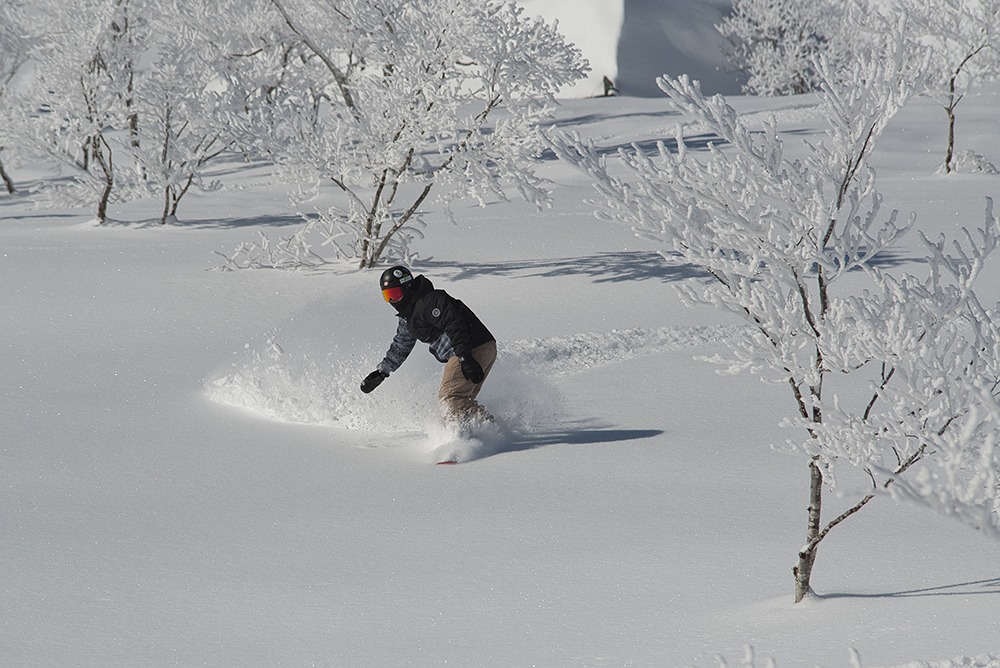
―Do you have any unique initiatives for Goryu to achieve “17 goals to be achieved by 2030” and “Carbon Neutral 2050”?
Mr. Tanaka: I think the first big challenge will be to continue what we have been doing. Speaking of alpine plants, one of the reasons for the decline of endangered species is the deterioration of the environment. There are researchers who have spent 30 years restoring the vegetation of this plant, and we are also receiving guidance from them as we operate this botanical garden. I think that it can be said that it is a valuable initiative by conveying it.
In that sense, I think it would be good if the hurdles could be lowered so that children could use it as a place for field trips, and local children could easily come and see it. I wish I could operate to circulate in the area by giving back to the area as much as possible.
For the past 12 years, I've been giving up disposable chopsticks and replacing them with cypress chopsticks that can be used all the time. The next thing I'm trying to do is "recover disposable body warmers." There is an organization that collects and sends disposable body warmers, turns them into something that cleans the lake, and scatters them on the lake to give back to the environment. Everyone naturally throws away disposable body warmers, so I would like to raise my voice to say, "Goryu collects them!" It's a small thing, but I think it's something that can contribute to the SDGs.
―This is a global environmental action that goes beyond the local area!
Mr. Tanaka: At Goryu Co., Ltd., we continue to acquire ISO 14001 certification from the International Organization for Standardization every year, which certifies the soundness and quality of our organization. We are working to protect the working environment of our employees and to maintain a certain level of impact on society. Last year as well, all employees participated in an ISO course and spent a day learning how to dispose of garbage in an environmentally friendly manner and deepening their understanding of environmental considerations.
Continuing to be a proper company, including this kind of management. Communicating this internally and externally, gaining the understanding and trust of society, and building good relationships with companies and people, and continuing to work with them, is also an important initiative toward 2030 and 2050. increase.
―I would like to hear your thoughts on these initiatives as an individual, Mr. Tanaka.。
Mr. Tanaka: Even if I wasn't working at a ski resort, I was of course personally interested in the idea that "human life must shift to behaviors and ways of thinking that are in line with the SDGs." I think you were thinking. However, when you work at a ski resort, if you don't protect the environment, you're directly going to strangle yourself. If there is less snow physically, the operating period will be shorter, profits will decrease, and employment will become unstable.
Even if Koyuki didn't have an impact, I think we're already in an era where more and more customers say they can't sympathize with ski resorts that don't have an awareness of the SDGs. In that context, we should be a company that works on the SDGs, and I personally think that we must continue to work on them.
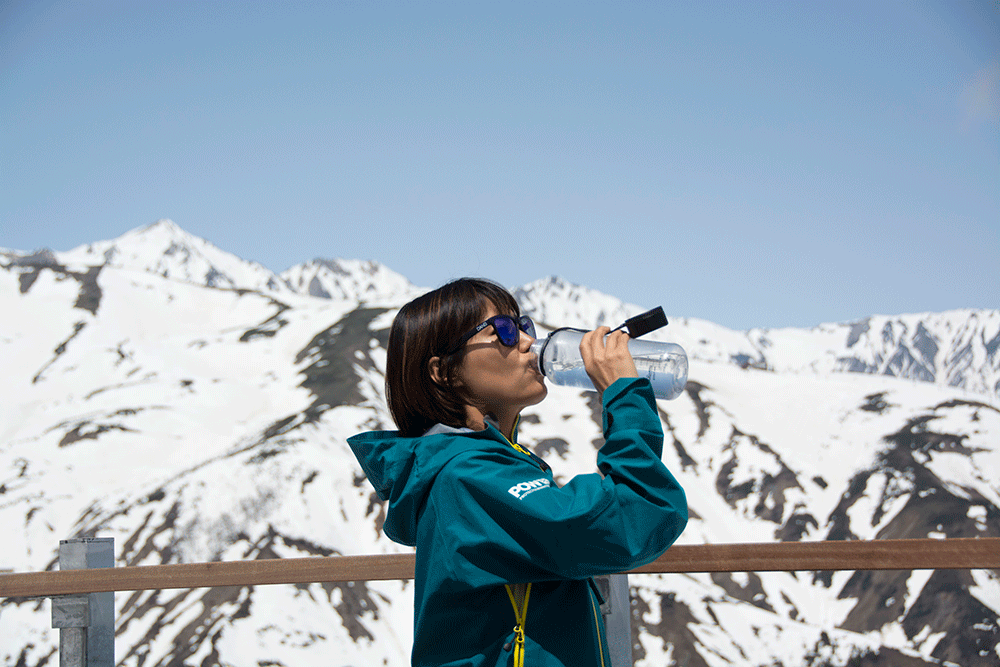
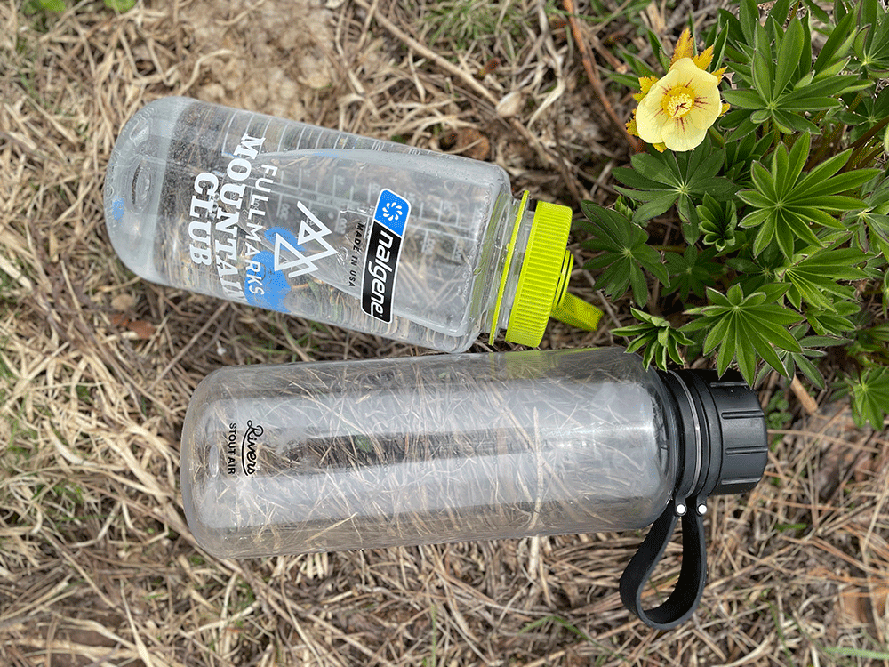
As for what I'm working on in my personal life... Well, first of all, I carry a liter of water with me every day. I don't really buy water anymore. I used to compost when I was in elementary school, but it didn't go very well. Insects grew, and it rotted without fermenting. However, after sharing information at the Hakuba Composting Research Group, I found that there were situations where I could do it myself, so I thought I'd give it a try this season.
I also do individual activities related to the SDGs goal of “education for all”. In terms of access to education, for example, single-parent families or families who moved from the city to the unfamiliar wilderness of Hakuba are more likely to experience nature on-site learning. Some children do not have access to nature, and in order to provide opportunities for nature education to such children, there is a boy scout group called Cub Scouts in Hakuba Village, a group for children in grades 3 to 5. I have been working as a deputy leader for 5 years.
After that, I'm a reuse principle, and I'm actually a fierce flea market app.
Mainly mountain equipment, mountain gear is durable and does not deteriorate, so I often sell items that I no longer use. There are more than 1000 past transactions, and my account has more than 60 followers (laughs).
Of the 17 goals of the SDGs, there are various themes other than the environment. Education is the same, but I would like to always be sensitive to such social issues as "gender" and "eliminating the gap between rich and poor." I also care about what people are interested in in public opinion. For example, what kind of topics are being talked about on SNS right now, and what kind of tags attract people? People and society's movements and values are constantly changing, so I always want to catch up.
Also, on International Women's Day on March 8th, we sent out a message on SNS and offered a small discount on night game fees, hoping for a world where women would not be treated unfairly in examinations or sports prize money. . I would appreciate it if you could be empowered even a little.
―Is that also connected to what you said, "Always be the best in the times?"
Finally, please give a message to skiers and snowboarders.
Mr. Tanaka: It is very important that many customers come to Hakuba Goryu Ski Resort. I want to be Playing in nature is fun, soothing, and rejuvenates your mind and body. Goryu also has a service that allows people with disabilities to go up the mountain in a wheelchair and be guided around the botanical garden by themselves.
I want this world to be a world where everyone can enjoy the richness that comes from interacting with nature.
I want Goryu to continue to be a place where it can play a part, even if it is small. Everyone, please come and visit Goryu!
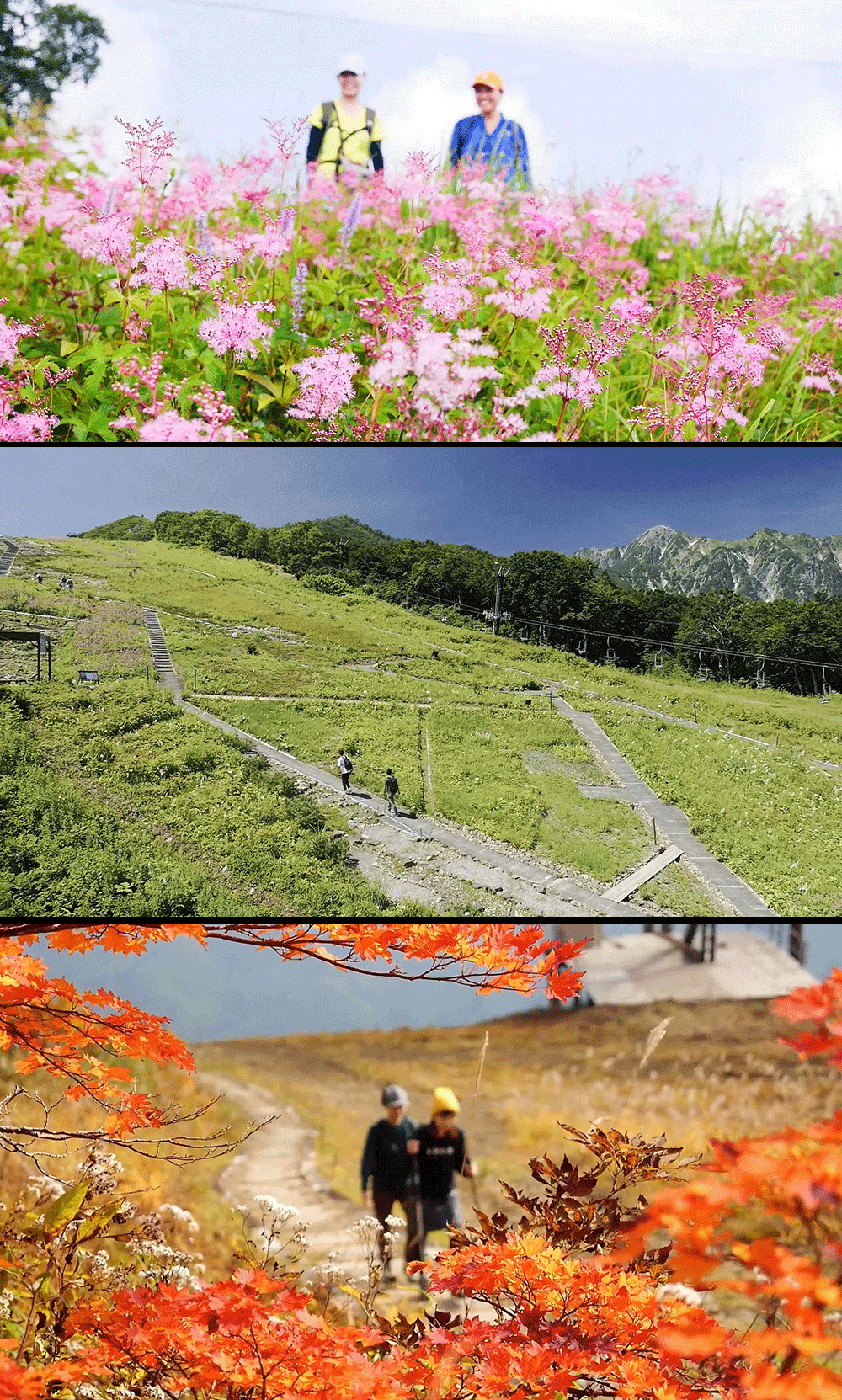
the person who taught me
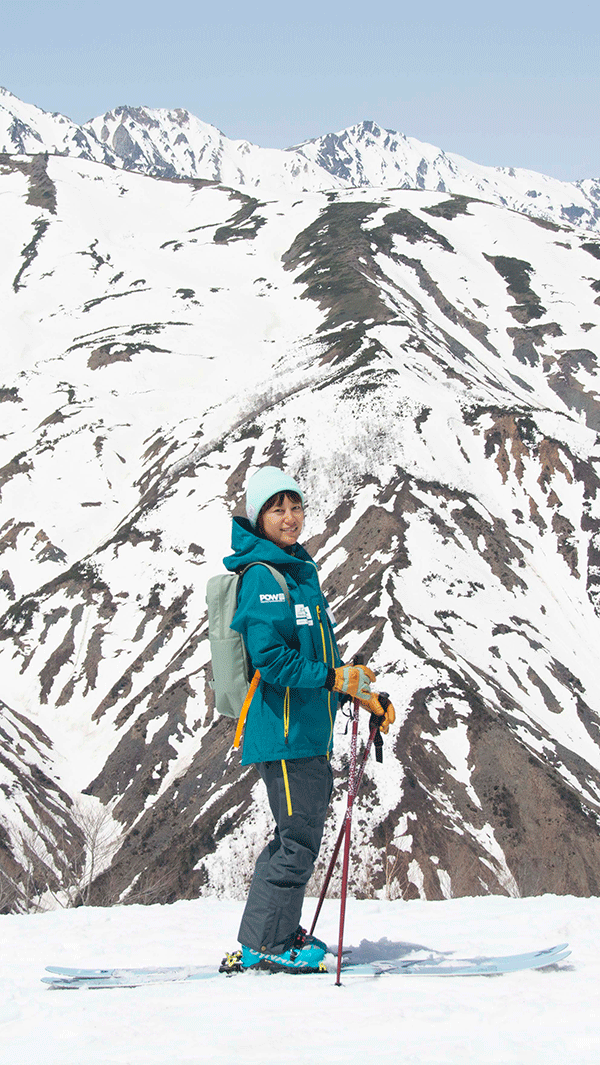
Tanaka
Sae
Goryu Co. Sales Promotion Department
IS&SDGs Committee
It's been eight years since I moved to Hakuba with my 8-year-old daughter from Chiba Prefecture. Her childhood Nozawa Onsen family skiing is the starting point, and now she also goes to the backcountry. She's been a single mother for 12 years, and she's self-taught in Hakuba, both English and Irare.
Interview cooperation / Goryu Co. April 2022 Interview / STEEP Editorial Department

